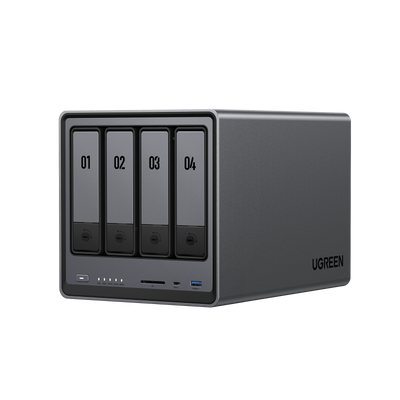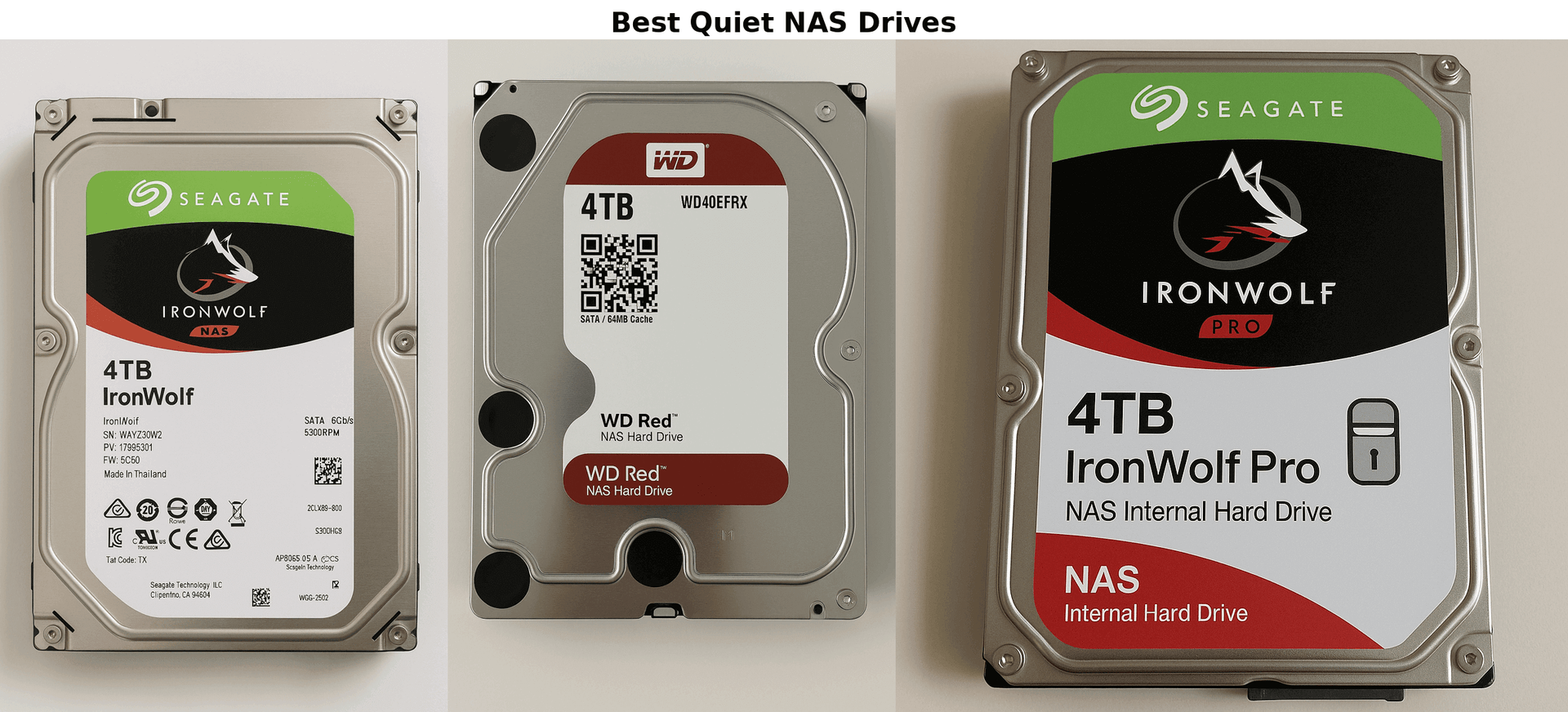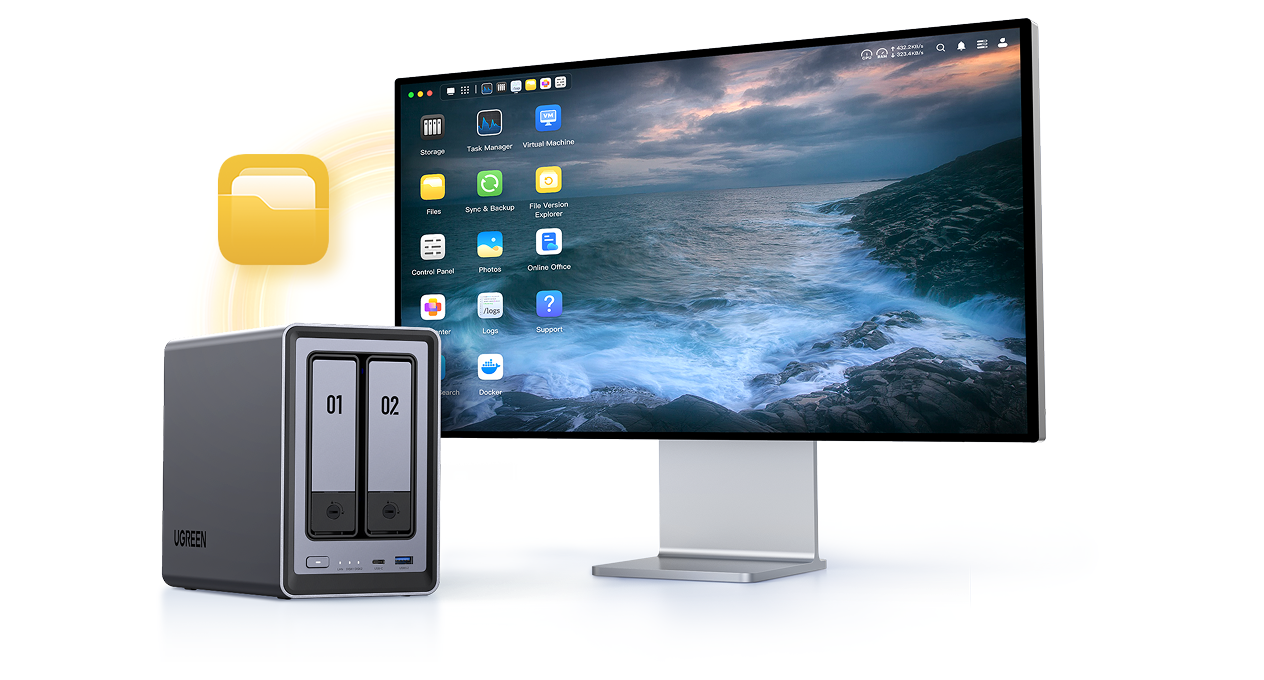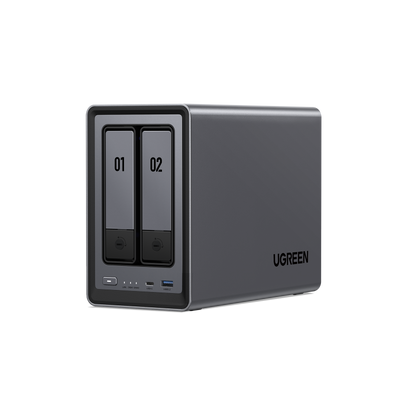NAS vs Cloud Storage: Which Is Best for Your Data in 2025?
With the ever-increasing need for secure storage, two solutions come to the fore: NAS (Network Attached Storage) and cloud storage. Both offer ways to protect your data, yet they take markedly different approaches.
In this post, we’ll weigh the pros and cons of each, and help you decide which storage solution fits your circumstances. Whether you’re a graphic designer handling hefty project files, a small business owner safeguarding client data, or just someone eager to preserve family memories, let’s find the option that’s got you covered.

NAS vs. Cloud Storage: Key Differences
Both NAS and cloud storage solve the same problem, keeping your data safe and accessible, but they do it in fundamentally different ways.
What is NAS?
NAS, or Network Attached Storage, is a dedicated storage device connected to your home or office network. Think of it as a personal server: you buy the hardware, install the drives, and manage it yourself. Whether you’re storing family photos or running a small business, NAS gives you complete ownership of your data. It’s like having a bespoke storage solution tailored to your needs, right at your fingertips. If you’re new to this and want a broader understanding, check out this beginner-friendly NAS storage guide.

What is Cloud Storage?
Cloud storage, by contrast, is a service provided by companies like Google Drive, Dropbox, or Microsoft OneDrive. Your data lives on remote servers, managed by someone else, and you access it via the internet. It’s a bit like renting a storage unit: convenient and scalable, but you’re entrusting your valuables to a third party. You pay a monthly or annual fee for the privilege, and in return, you get flexibility and ease of use.
In the next sections, we’ll explore these differences in more detail, weighing the pros and cons to help you decide which path to take.
Head-to-Head Comparison
How do NAS and cloud storage compare when it comes to the factors that really matter? We’ll explore six key areas, cost, security and privacy, performance and speed, backup and disaster recovery, accessibility, and scalability. Whether you’re a small business owner safeguarding client data or a home user storing family photos, this breakdown will help you decide which option fits your life best.
1. Cost
First up, what’s the damage to your wallet?
-
NAS Pros
- One-off purchase: You pay upfront for the hardware, say, £500 for a solid NAS and drives, and that’s it. No recurring fees nibbling away at your budget.
- Long-term value: Got heaps of data that won’t change much? Over five years, that £500 NAS could beat cloud costs of £100+ annually for similar storage (think 10TB).
-
NAS Cons
- Steep initial cost: Quality NAS gear plus drives isn’t cheap, especially if you’re starting from scratch.
- Extra expenses: Drives wear out, and replacements are on you. Need more space? That’s another investment.
-
Cloud Pros
- Pay-as-you-go: Start small with a modest subscription, £5/month, perhaps, and scale up only when you need to.
- No surprises: Monthly fees are predictable, unlike the occasional shock of replacing a failed drive.
-
Cloud Cons
- Mounting costs: For big data users, those subscriptions add up fast. Storing 10TB might cost £500 a year, more than a NAS in the long run.
- Sneaky fees: Watch for extras like bandwidth overages or data retrieval charges.
Everyone assumes cloud storage is the budget pick, but if your storage needs are large and steady, like a videographer with terabytes of footage, NAS could save you a bundle over time.
2. Security & Privacy
Your data’s safety is non-negotiable. Which option locks it down better?
-
NAS Pros
- You’re in charge: No third parties touching your files, just you, your NAS, and your security setup. Perfect for sensitive stuff like tax docs or personal snaps.
- GDPR-ready: For businesses, you can customise security to comply with UK regulations without relying on someone else’s policies.

-
NAS Cons
- DIY security: You’ll need to handle updates, encryption, and firewalls. Not tech-minded? That’s a challenge.
- Physical threats: A NAS at home could be nicked or wrecked in a flood, unlike cloud data floating safely in a data centre.
-
Cloud Pros
- Top-tier protection: Big providers pour millions into encryption and compliance, often exceeding what most of us could manage alone.
- Spread-out storage: Your data’s copied across multiple sites, so a single failure won’t wipe it out.
-
Cloud Cons
- Trust issues: You’re handing your data to a company that could face breaches, or legal demands to share it under UK law.
- Less control: Privacy tweaks are limited to what the provider offers.
Cloud storage gets the “secure” label thanks to its professional sheen, but a NAS, properly managed, might actually keep your data safer. It’s your own vault versus a shared safe deposit box, control can usually trump convenience.
3. Performance & Speed
Need your files now? Let’s see which delivers.
-
NAS Pros
- Blazing local speed: On your home network, NAS can hit 100MB/s or more, great for editing videos or gaming without lag.
- No internet needed: Slow broadband won’t hold you back, a relief in rural spots with dodgy connections.
-
NAS Cons
- Remote hiccups: Products like UGREEN NAS Storage support remote access. Accessing it from afar requires some setup (like a VPN), and speeds are limited to whatever your internet allows.
-
Cloud Pros
- Anywhere access: With decent Wi-Fi, your files are ready wherever you are, handy for working on the train or abroad.
-
Cloud Cons
- Internet dependency: No internet = no access. Problematic in remote areas or during network outages.
- Local network speed disadvantage: Even on the same local network, cloud data must route through external servers, limiting transfer speeds to internet bandwidth, nowhere near NAS’s direct performance.
- Dual bandwidth drain: Uploads/downloads consume your internet bandwidth, creating bottlenecks with multiple users.
4. Backup & Disaster Recovery
Disaster strikes, what’s your safety net?
-
NAS Pros
- Tailored backups: Use RAID (redundant array of independent disks) or external backups to suit your paranoia level.
-
NAS Cons
- Off-site effort: Protecting against fire or theft means manually backing up elsewhere, more work for you.
-
Cloud Pros
- Built-in safety: Data’s duplicated across data centres, so a single crash won’t kill it.
- Easy recovery: Just log in and download, no fuss.
-
Cloud Cons
- Slow restores: Big backups over the internet can crawl, especially with typical UK broadband.
Cloud’s automatic backups are a lifesaver, but a NAS with a solid plan gives you more control and faster local recovery.
5. Accessibility
Can you get your data when and where you need it?
-
NAS Pros
- Local ease: On your network, it’s as simple as clicking a folder, no internet required.
-
NAS Cons
- Remote setup: Want access from outside? You’ll need to configure it (e.g. with a VPN), and it might not be seamless.
-
Cloud Pros
- Global reach: Anywhere with internet, your files are there, ideal for jet-setters or remote workers.
-
Cloud Cons
- Net reliant: No connection, no data. A pain in areas with spotty coverage.
Cloud’s the king of on-the-go access, but NAS shines for reliable, no-internet-needed use. It’s your home library versus an online subscription, different strengths for different lives.
6. Scalability
What if your data needs explode?
-
NAS Pros
- Fixed costs: Add drives as needed (up to the device’s limit) without subscription creep.
-
NAS Cons
- Hard limits: Most NAS units max out at a set number of bays, expansion means new hardware.
-
Cloud Pros
- Endless growth: Bump up your plan anytime; no physical upgrades required.
-
Cloud Cons
- Pricey scaling: More data, higher bills, costs can balloon for growing businesses.
Cloud’s flexibility is lauded, but NAS’s finite capacity can force smarter data habits, keeping costs in check.
When to Choose NAS Over Cloud
Now that we’ve weighed NAS against cloud storage, let’s pinpoint when NAS takes the lead. It’s not about one being universally better, it’s about what fits your needs.
Scenarios Where NAS Excels:
-
Creative Professionals Needing Speed and Savings
For those working with massive files, think photographers, videographers, or graphic designers, NAS delivers fast local access that cloud storage can’t match. No more twiddling your thumbs while 4K footage uploads. Plus, with no recurring fees, it’s often a smarter long-term investment. If you’re unsure whether a 2-bay or 4-bay setup makes more sense for your media workflow, this guide on choosing the right NAS bay configuration can help you weigh the pros and cons for storage, scalability, and budget.
{{UGPRODUCT}} -
Businesses Demanding Data Control
Small businesses handling sensitive info, like solicitors or healthcare providers, benefit from NAS’s hands-on security. You control where your data sits and how it’s protected, crucial for sticking to UK regulations like GDPR. No third-party risks, no guesswork.
-
Home Users Wanting a One-Stop Solution
Tech-savvy households can use NAS as a central hub for all their devices. It’s perfect for sharing films, photos, or backups without juggling external drives or paying monthly cloud fees. One upfront cost, endless possibilities.
Hybrid Approach: Maximizing Both Worlds
What if you didn’t have to choose between NAS and cloud storage? A hybrid approach lets you blend the best of both, local control with NAS and remote convenience with the cloud.
Many NAS devices now come with built-in cloud integration, making this setup a breeze. For instance, UGREEN NAS systems can sync directly with Google Drive or OneDrive, so you don’t need to be a tech whiz to set it up.




